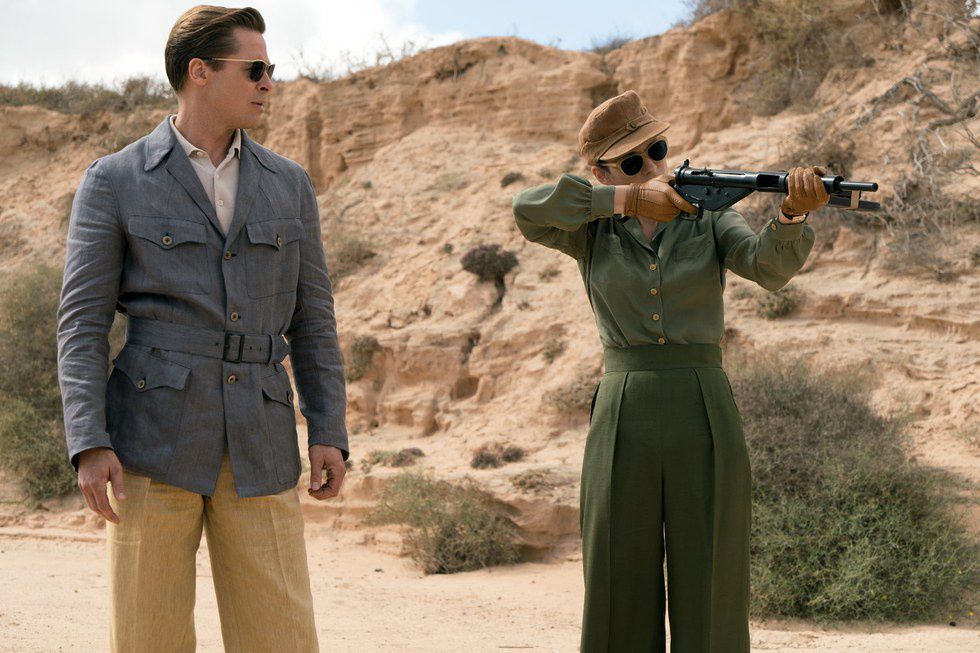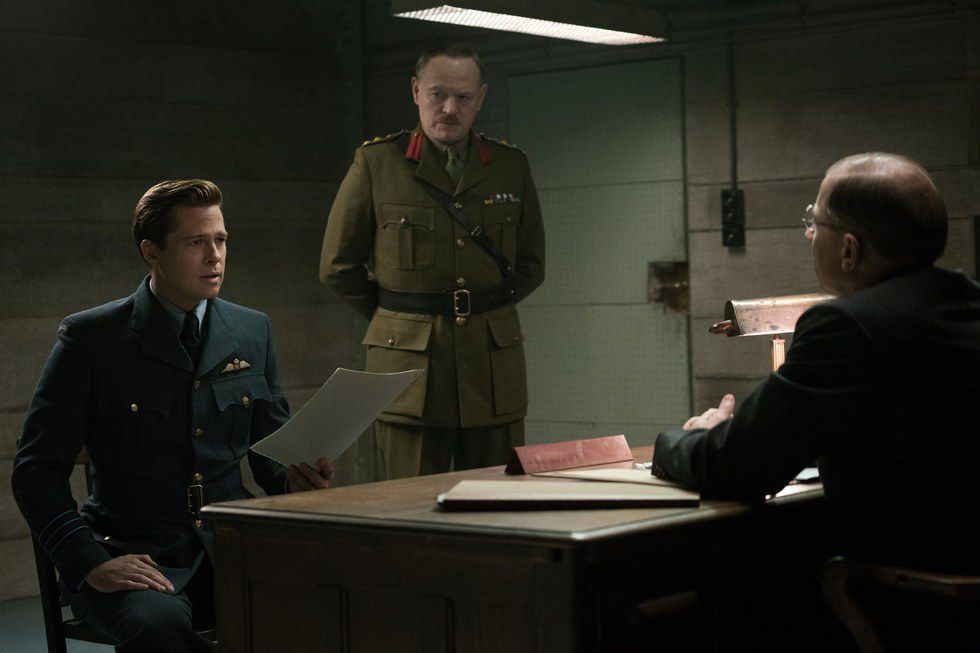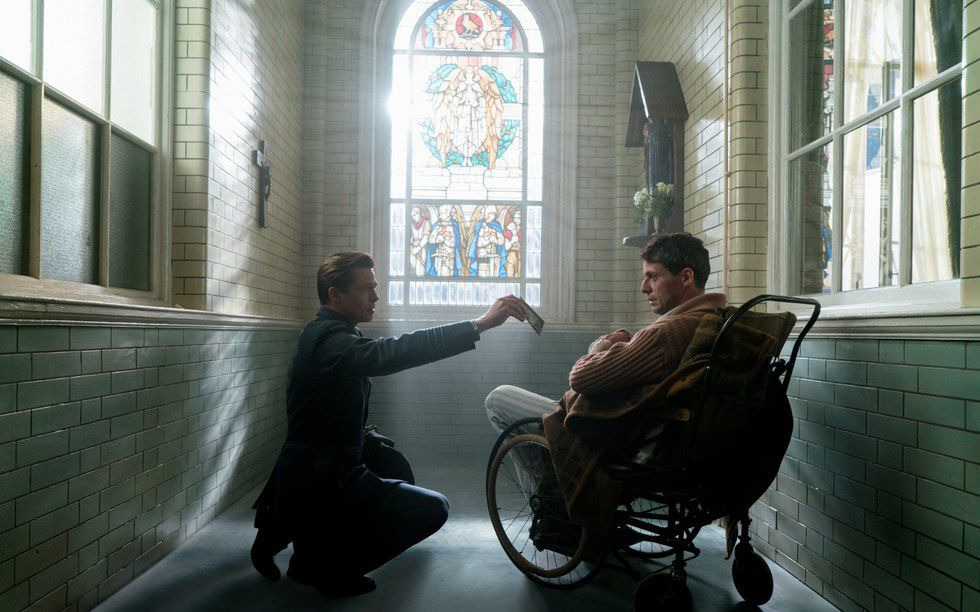“Allied” is missing something. The film takes aim at epic, war-time drama, and while it occasionally finds success, its slow first half, corny romanticism, and inability to get truly interesting keep it from exciting, romantic glory. The film does have its moments, though, and the ending is handled maturely and appropriately—I hate when things get out of hand right at the end, *cough*—Arrival—*cough.* But for a movie with so much talent “on either end of the camera” (as they like to say), its dull execution felt odd to me.
Before I insult anyone, I am aware this movie is a revival piece for 1940s romantic cinema (i.e. Casablanca), but I consider myself more of a modern cinephile. Thus, I had trouble buying into Mrs. Marianne Beauséjour (Marion Cotillard) giving birth in the middle of hellish, spontaneous dogfights in 1942 England. This is certainly not a knock against Cotillard’s performance; in fact, she’s arguably the best thing this film has to offer. She plays a French Resistance fighter who is tasked with assassinating the German Ambassador of—you guessed it—Casablanca, alongside a Canadian intelligence officer by the name of Max Vatan (Brad Pitt). The two pose as a happy couple and become close to local German moguls to secure an invitation to a fancy party, one which said the German Ambassador will be attending as well. But despite efforts to maintain a “business” relationship, the two, inevitably, end up falling in love—for real!
*cue cute, old-timey, war-time wedding montage*
Okay, we’re back. The happy family—Max, Marianne, and baby Anna—settles down in London after a successful assassination. Max works, still, as an intelligence officer, and his days seem to consist of a kiss to his wife and daughter each morning, fulfilling great amounts of important work, and returning to a cozy home with a hot supper awaiting him. But the nostalgic, euphoric mood of 1940s love was never meant to last, guys, come on…
Max is briefed privately by another high-ranking officer, this time with speculation that his wife may be a German spy—and must be assassinated within 48 hours if the shoe fits. Despite Max’s efforts to convince them of his wife’s loyalty to the Allies, hard evidence (which is explained lazily, as we’re expected to not ask questions, rather, just accept plot holes as they come) points the finger toward Marianne.
Returning home, Max watches his wife carefully, acting rather suspiciously and hostilely. After answering a phone call and jotting down some super-secret anti-German leads, Max is tasked with being purposely sloppy and leaving the note in plain sight for Marianne. If the information falls into German hands—guilty as charged.
Max takes matters into his own hands. At this point, the film is its most interesting and suspenseful—at least, it feels that way in comparison to the first half. Max travels to find former colleagues of Marianne, interrogates a scary looking one-eyed man in a wheelchair, and secretly tasks a new pilot with a mission which could jeopardize the Allies’ mission behind enemy lines to get some answers. Reminiscent of movies like “Prisoners,” the theme of how far we’re willing to go for our loved ones, German spies or not, is still a good point to build some old-fashioned suspense from.
The ending is the best portion of this film and the emotional climax that it needed. But this movie is slow-paced, poorly scripted at times, and just slightly unbelievable. Like I said, it’s missing something. Maybe it was that Pitt didn’t fully convince me, or that the story didn’t completely intrigue me—or maybe I’m just not keen to wartime romances. Nonetheless, it’s entertaining enough to catch, just lower those expectations ever-so-slightly and find a discount day at your local theater.
I give “Allied” a 6/10.





















